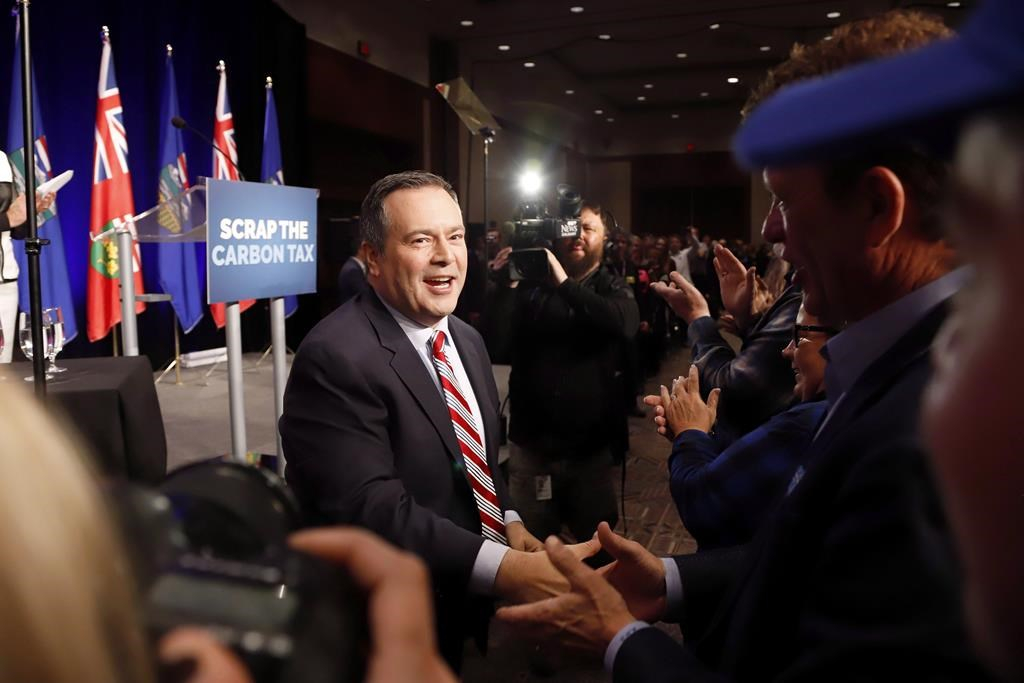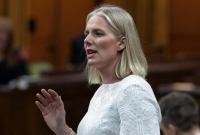Support strong Canadian climate journalism for 2025
About a year ago, Alberta's United Conservative Party leader stood in front of 1,500 raucous supporters and called the federal carbon tax an act of "economic masochism" that he would fight with everything in his power if he were elected premier.
Jason Kenney did win the election last spring, and government lawyers are to argue today before Alberta's Appeal Court that he should win his tax fight, too.
"Alberta says that this is an unwarranted and unprincipled intrusion into provincial jurisdiction," says the province's written argument. "It undermines the basic structure of our constitutional system."
Two other provincial Appeal Courts have begged to differ. Ontario and Saskatchewan lost their challenges of the federal tax on carbon, although both judgments had dissenters.
Eric Adams, a University of Alberta law professor, said he doesn't expect to hear any new arguments on Monday.
"It's just a new panel of judges to bring these arguments in front of," he said.
"The argument is that justice on a local level requires judges who live in a jurisdiction and understand its peoples and its concerns. Sometimes, constitutional arguments made in a particular place can have the flavour of that particular place."
Adams said he believes Alberta is unlikely to win. But if there's a dissenting judge, that could bolster the government's argument before the Supreme Court of Canada, which has already scheduled a January date for the Ontario and Saskatchewan appeals.
"If they don't win, they hope for a judgment from some judges that lends weight and credibility, and maybe a new perspective to add to the dissenting opinions that have already been rendered in Saskatchewan and Ontario," said Adams.
Ottawa argues that the peace, order and good government clause of the Constitution gives it power to pass legislation on matters of national concern. Establishing minimum national standards on greenhouse gas emissions "is a matter of national concern that only Parliament can address," it argues.
Alberta says using that clause is an unwarranted expansion of a federal power that in the past has been used sparingly. It says provinces already have the power to deal with emissions and should be left to do so.
"The federal government made a gamble here that this was a case that was worth opening up that previously neglected box," Adams said. "They've taken a bit of a risk here."
Three out of five Saskatchewan appellate judges agreed with Ottawa, as did four out of five of their Ontario colleagues. Past judgments have recognized the environment as a matter of shared jurisdiction.
Either way, Adams cautions against putting too much weight on these cases. If current arguments for a national carbon tax are rejected, the federal Liberals have invested too much political capital not to try new ones, he suggested.
"If they lose the case, they'll look at other ways to bring legislation that can deal with the climate crisis. No matter how this case goes, it won't be the end of parliamentary attempts to deal with climate change."
Kenney ditched a consumer carbon tax that the previous NDP government had brought in soon after his party won the election. He has established a $30-a-tonne carbon tax on industrial emitters, replacing somewhat stronger measures introduced by the New Democrats. The Trudeau Liberals have approved that tax.
Arguments are scheduled for three days. As well as Alberta and Canada, the attorneys-general of Ontario, New Brunswick, Saskatchewan and British Columbia are to speak, as are eight First Nations, non-governmental groups and Crown corporations.
This report by The Canadian Press was first published Dec. 16, 2019.





Comments